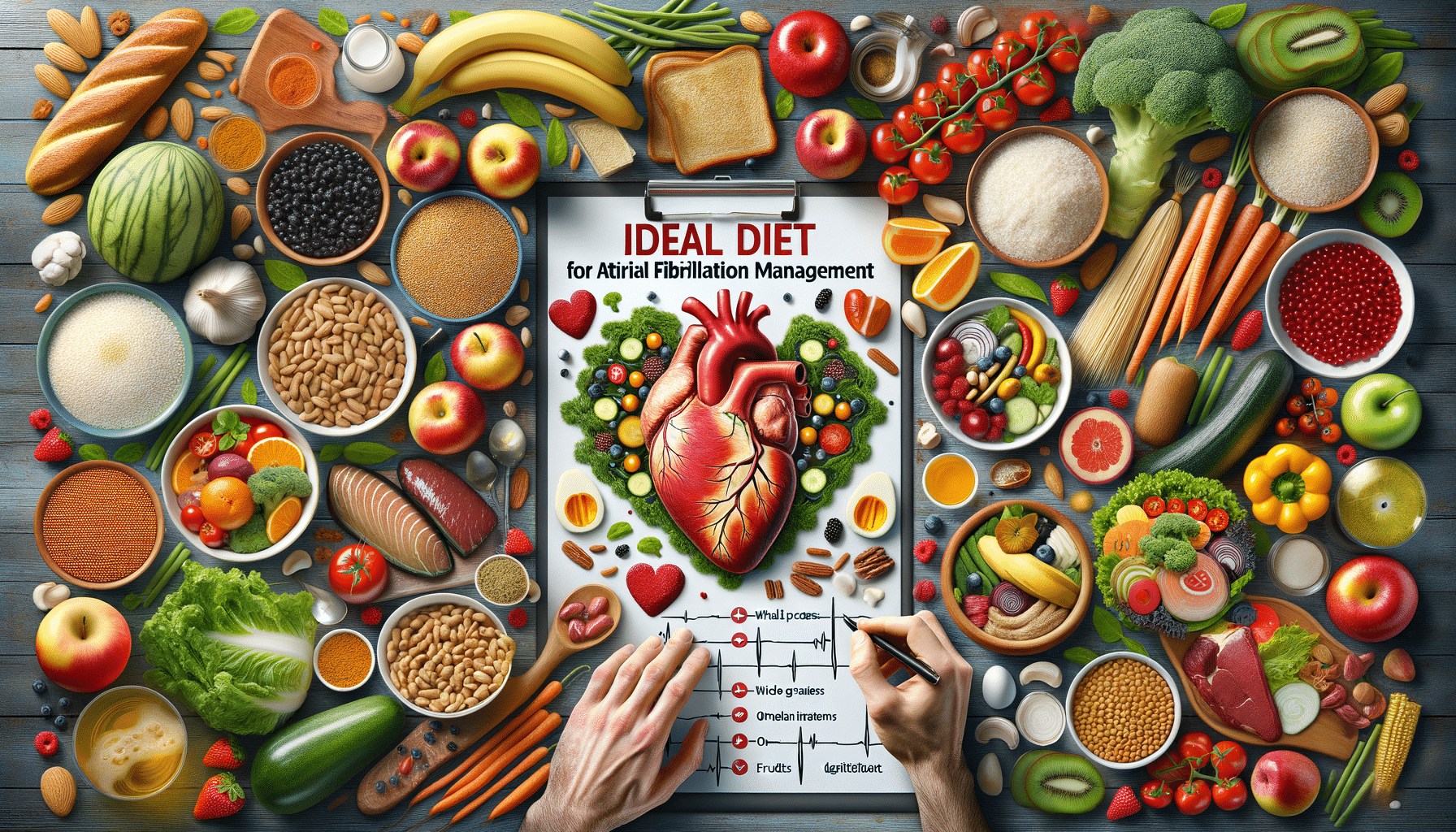
Discover the Ideal Diet for Atrial Fibrillation Management
Understanding Atrial Fibrillation and Its Dietary Implications
Atrial fibrillation (AFib) is a heart condition characterized by an irregular and often rapid heart rate. This can lead to poor blood flow and increase the risk of stroke, heart failure, and other heart-related complications. Managing AFib involves a combination of medical treatment and lifestyle changes, with diet playing a pivotal role. A heart-healthy diet can help control the symptoms and reduce the frequency of AFib episodes. It is crucial to understand how different foods and nutrients affect heart health and contribute to managing this condition effectively.
AFib management through diet involves reducing the intake of foods that can trigger episodes while increasing the consumption of heart-friendly nutrients. For example, high levels of caffeine and alcohol are known to exacerbate AFib symptoms, so limiting these can be beneficial. On the other hand, foods rich in omega-3 fatty acids, such as fish, and those high in antioxidants, like fruits and vegetables, are encouraged. These dietary choices can help maintain a healthy heart rhythm and reduce inflammation, which is often linked to AFib.
Understanding the dietary implications of AFib is the first step toward effective management. By making informed choices about what to eat and what to avoid, individuals can take active control of their heart health and minimize the impact of AFib on their lives.
The Role of Omega-3 Fatty Acids in Heart Health
Omega-3 fatty acids are essential fats that play a critical role in maintaining heart health. They are found in high concentrations in fatty fish such as salmon, mackerel, and sardines. These healthy fats are known for their anti-inflammatory properties, which can help reduce the risk of heart disease and manage conditions like AFib.
Research has shown that omega-3 fatty acids can help lower blood pressure, reduce triglyceride levels, and decrease the risk of arrhythmias, including AFib. Incorporating these fats into the diet can be achieved by consuming fish at least twice a week or by using supplements if recommended by a healthcare provider. In addition to fish, omega-3s can also be found in plant-based sources such as flaxseeds, chia seeds, and walnuts.
By prioritizing the intake of omega-3 fatty acids, individuals with AFib can support their heart health and potentially reduce the severity of their symptoms. This dietary focus not only aids in managing AFib but also promotes overall cardiovascular wellness.
The Impact of Antioxidants on Atrial Fibrillation
Antioxidants are compounds that help protect the body from oxidative stress and inflammation, both of which are linked to heart disease and AFib. A diet rich in antioxidants can support heart health and reduce the risk of AFib episodes. Foods high in antioxidants include fruits, vegetables, nuts, and seeds.
Specific antioxidants, such as vitamin C, vitamin E, and polyphenols, have been studied for their heart-protective benefits. Berries, citrus fruits, spinach, and nuts are excellent sources of these nutrients. Including a variety of colorful fruits and vegetables in the diet ensures a broad intake of antioxidants, which can help combat inflammation and oxidative stress in the heart.
By focusing on antioxidant-rich foods, individuals with AFib can enhance their heart health and potentially lessen the impact of this condition. This dietary strategy not only aids in AFib management but also contributes to overall health and longevity.
Limiting Caffeine and Alcohol for Better Heart Rhythm
Caffeine and alcohol are known triggers for AFib episodes. Both substances can affect heart rhythm and increase the likelihood of irregular heartbeats. For individuals managing AFib, it is important to monitor and limit the intake of these substances to maintain a stable heart rhythm.
Caffeine is commonly found in coffee, tea, energy drinks, and certain medications. While moderate consumption may be safe for some, excessive intake can lead to increased heart rate and AFib episodes. Similarly, alcohol consumption should be approached with caution. Even moderate drinking can trigger AFib in some individuals, so it is advisable to limit intake or avoid it altogether.
By making conscious choices about caffeine and alcohol consumption, those with AFib can better manage their symptoms and reduce the frequency of episodes. This approach, combined with other dietary strategies, can lead to improved heart health and quality of life.
Creating a Heart-Healthy Meal Plan for AFib Management
Developing a heart-healthy meal plan is a proactive step in managing AFib. This involves incorporating a variety of nutrient-dense foods that support heart health and avoiding those that can trigger symptoms. A balanced meal plan should include:
- Plenty of fruits and vegetables for antioxidants and fiber
- Whole grains for sustained energy and heart health
- Lean proteins such as fish, poultry, and legumes
- Healthy fats from sources like olive oil, nuts, and seeds
It is also important to be mindful of portion sizes and meal timing. Eating smaller, more frequent meals can help maintain stable blood sugar levels and reduce the risk of AFib episodes. Additionally, staying hydrated and limiting sodium intake can further support heart health.
By following a well-rounded meal plan, individuals with AFib can take control of their diet and enhance their ability to manage the condition. This approach not only supports heart health but also promotes overall wellness and vitality.


